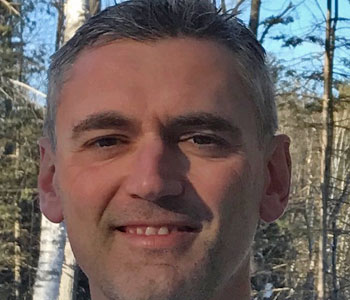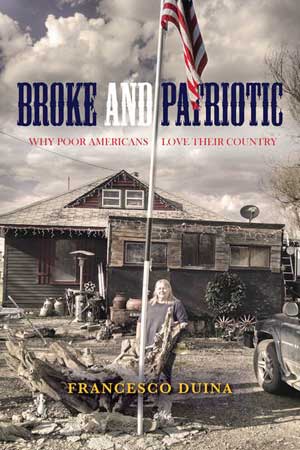
America’s poorest citizens are among its most patriotic. Their love of country – and indeed, their sense that the United States is superior to other countries in the world – is according to most measures unmatched by wealthier Americans. It also exceeds the patriotism of poor citizens in most other advanced nations in the world. At the same time, America’ s least well-off have access to fewer benefits, work longer hours, face more inequality, and their chances of upward mobility are worse than is the case for poor citizens in other advanced countries. Why, then, are they so patriotic? If anything, one might expect poor Americans to feel a sense of dissatisfaction, if not outrage, towards their country. Why do they think so highly of their country?
The answer matters a lot. So much depends on their patriotism: social cohesion, military recruitment, voting behavior, political parties’ platforms (just consider, for a moment, the success of Donald Trump’s ‘Make America Great Again!’), the nation’s sense of self and place in the world, and more.
This book offers insights into this puzzle. During 2015 and 2016, I spent time in laundromats, bus stations, homeless shelters, used clothing stores, streets, and other venues in Alabama and Montana and conducted 60 in-depth interviews with poor and patriotic Americans; I also spoke with 3 poor but unpatriotic individuals. I was eager to hear their answers, give them a voice, and learn from their perspectives. I spoke to people in rural and urban settings, and of various races, genders, political orientations, religious beliefs, histories of military service, and ages.
Broke and Patriotic reports on the findings. Three primary narratives emerged. First, many of the people I met spoke of America as being the last hope for themselves and, more fundamentally, humanity. The United States represents deliverance from many of the ills that have plagued humanity from time immemorial. It celebrates the worth of each person (“Here, I am as worthy a human being as the President of the United States!”, I was told by more than one person). As such, America gives everyone a sense of dignity. For many of the people I met, this promise holds extraordinary value. Second, America is the “land of milk and honey”. Everyone wants to come here, the “roads are paved in gold”, and anyone can make it. Failure, I was reminded, is one’s own responsibility. Third, America is the land of freedom – both physical and mental. Where else, one person in Montana asked me, can one choose to be homeless? While other countries repress their people and punish them with undo process, Americans are allowed to come and go wherever they wish, and to think whatever they wish. This includes freedom of religion – a major reason why America, several people reasoned, holds a special place in God’s heart. And if the government is increasingly intrusive, this is because it has simply strayed away from the social contract. In this context, freedom means also owning guns, which is not only a means of self-defense but a necessity for hunting and therefore feeding one’s family.
While in many cases misconceptions of other countries abounded (“Only Israel and the United States”, I was told for instance, “are democracies in the world”), it became very clear to me that most of the people I met felt a genuine and reasonable sense of ownership toward their country. Americans do not belong to the country; it is the country that belongs to them. This is a bottom-up sort of patriotism. And for those who otherwise struggle so much in their daily lives such an attachment offers them a very precious psychological lifeline.
Broke and Patriotic is an effort to better understand and give voice to an important segment of the population that most of the country so often neglects. It also speaks to a body of research on the nature of patriotism. As it turns out, while scholars know quite a lot about American patriotism in general, and the patriotism of certain minorities or segments of society (African Americans, for instance, or immigrants, or women), no attention has been given to the country’s poor. Yet, as I noted earlier, so much depends on their attachment to and celebration of America.
The book also speaks to the rise in populism that we have witnessed recently in the Western world. While we may be living in the age of globalization, the nation-state is far from dead, contrary to the predictions of many social scientists. National identities are deeply rooted in the collective psyche, and this book tries to uncover some of the mechanisms and logics involved.
I was also interested in dispelling the notion, somewhat prevalent among some elitist segments of our population, that America’s poor are somehow stupid or have been duped into a sense of ‘false consciousness’, so as to pacify them and prevent them from seeking change. As I expected, many of the people I met were articulate, thoughtful, and able to justify with sophistication and a good sense of history their attachment to the country.
I came to write this book after completing two prior books on American culture. One, Winning: Reflections on an American Obsession (2011), examines the country’s unusually intense competitive spirit. The other, Life Transitions in America (2013), considers how mainstream American culture makes sense of major life transitions. As a young immigrant to this country, and as a sociologist for two decades now, I have been fascinated for some time by the ‘glue’ that holds this country together: its shared narratives, belief-systems, and values. I have also written quite a bit about globalization and national identity in Europe. The time seemed right to tackle this question.
I would hope that readers open the book precisely at the first page of Chapter 1, where we hear Eddy’s thoughts (all names have been disguised, to protect anonymity), an African-American man in Alabama who was once a very promising young student but then fell on hard times. He reflects on the great promise of America. In chapters 4, 5, and 6, we hear about the three major narratives I encountered: hope, richness, and freedom. This is also where the reader encounters the humanity, optimism, thoughtfulness, fragility, and stories of suffering and painful personal missteps of the respondents. It is where we realize that everyone holds on to certain stories and myths, that we all need meaning in our lives, that we all entertain contradictions in our minds, and that life can be at once very unfair and inspiring.
What we learn in Broke and Patriotic about the mindsets and beliefs of this particular segment of American society hopefully brings the readers to several conclusions. First, national identity can give citizens an incredible sense of dignity. This means that, at least for this segment of the population, nothing can yet replace that identity: globalization, for instance, while a powerful force does not have a hold on people’s deepest feelings about themselves and the world. Second, we should never question the depth of thinking, sophistication, or knowledge of those who might have less than we do. This reminds me of Hillary Clinton’s unfortunate “deplorables” comment in the 2016 presidential elections.
Third, American social cohesion greatly depends on the deeply-rooted attachment to the social contract felt by many of its citizens. This is certainly a source of social stability. At the same time, it also means that great upheaval is in fact quite possible: should they reach the conclusion that their government has betrayed the core values of the nation, they could in fact demand drastic changes. As one First Gulf War veteran told me, America’s military pledges its allegiance to the Constitution, not the government.
Finally, there is still an enormous amount of goodwill and love of the country left among the most neglected and discriminated-against citizens. They are willing to serve, help, and mobilize for their country. This is both moving as well as a lesson to those with more wealth. If those Americans with so little in financial terms are willing to aid the country and their fellow citizens, what should those with more do? Moreover, what do those richer Americans owe to their poorer compatriots?


Francesco Duina received his Ph.D. in Sociology from Harvard University in 1996. He is Professor of Sociology at Bates College (USA) and Honorary Professor of Sociology at the University of British Columbia (Canada). He has published widely on economic, political, and cultural sociology. His books include Winning: Reflections on an American Obsession (Princeton University Press), The Social Construction of Free Trade: The EU, NAFTA, and Mercosur (Princeton University Press), and Institutions and the Economy (Polity Press).